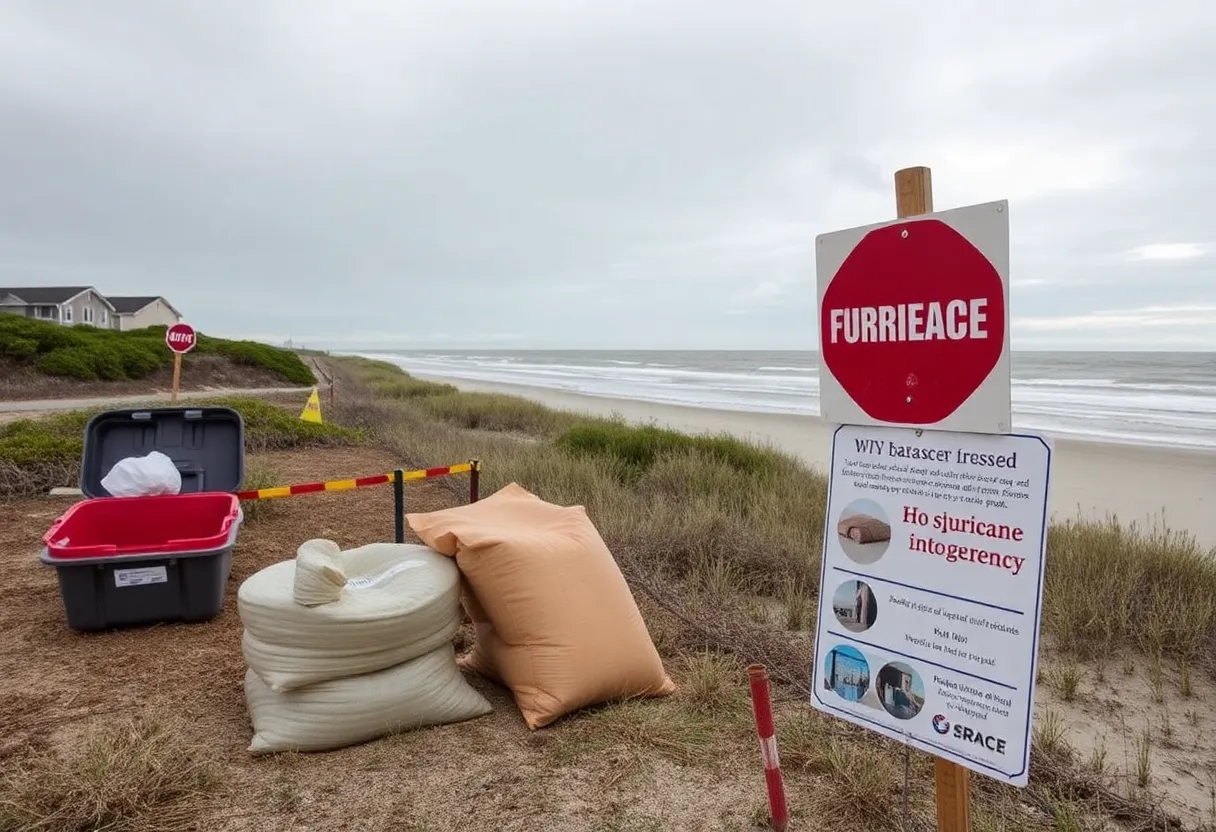News Summary
As the Atlantic hurricane season begins, early tropical storm activity has been reported, including the formation of Tropical Storm Alvin. The NOAA predicts a chance for an above-normal season, with discussions on emergency preparedness and training in Florida. Despite the quietness in the Atlantic, local officials stress the importance of being ready, as heavy rainfall and storm surges pose threats to coastal residents. Hopeful signs in Florida’s insurance market indicate stability for homeowners amid ongoing hurricane risks.
Miami, FL – Early tropical storm activity has begun to signal the preparations for the 2025 Atlantic hurricane season, which officially commenced on June 1 and runs until November 30. Tropical Storm Alvin formed off the Mexican coast in the Pacific Ocean before the season began, followed by Tropical Storms Barbara and Cosme, with Barbara marking the season’s first hurricane. The National Oceanic and Atmospheric Administration (NOAA) predicts a 60% chance of an above-normal hurricane season this year, a decrease from the previous year’s forecast of an 85% chance, with the remaining 40% split between near-normal and below-normal outcomes.
Despite NOAA’s predictions for the Atlantic, the ocean currently remains inactive with no storms formed, and the name Andrea is yet to be utilized. NOAA estimates that the Atlantic hurricane season may see between 13 to 19 named storms, which includes expectations for 3 to 5 major hurricanes. As forecasters analyze conditions, they are also keeping a close eye on the eastern Pacific, where tropical activity appears more pronounced this early in the season.
Budgetary discussions in Tallahassee have delayed Florida’s two sales tax holidays intended for hurricane and emergency supplies, potentially leaving residents without immediate tax relief for essential items as the season gets underway. In light of these developments, Palm Beach County emergency officials are emphasizing the importance of being prepared for hurricanes and strongly advise residents to familiarize themselves with evacuation protocols.
While early forecasts may raise concerns, there is a hopeful sign emerging in Florida’s insurance market. A recent report indicates an estimated profit of $207 million for insurers in 2024, indicating a return to profitability following a combined loss of $174 million in 2023. This could suggest a stabilizing market for insurance despite ongoing hurricane-related risks that persist as significant concerns for the population.
Florida Governor Ron DeSantis has noted that there has been a minimal increase in insurance rates, at just 1%, compared to the more significant increases of prior years. Legislative measures enacted in 2022 aimed at limiting homeowners’ lawsuits against insurance companies are thought to have played a role in this stabilization, possibly making it more challenging for companies to raise rates in the future.
Nevertheless, reports highlight that insurance companies have extracted over a billion dollars in profits for shareholders while advocating for changes in litigation rules. These dynamics underline the complexities facing the market as they navigate both profitability and the necessary levels of coverage for homeowners vulnerable to storm damage.
Emergency preparedness is critical as weather patterns are unpredictable. Local officials are recommending that residents maintain essential supplies, have emergency documents ready, and consider evacuation options as the season progresses. Storm surges are noted as being responsible for much of the damage during hurricanes, which can lead to severe flooding. Additionally, heavy rainfall can have tremendous impacts, further complicating the dangers posed by a potent storm.
Current forecasts anticipate mixed weather patterns, including the potential for tropical development in the Caribbean starting in the second week of June. Given the unpredictable nature of hurricanes and their swift changes, the importance of readiness cannot be overstated. Being well-prepared ensures that residents can respond appropriately, safeguarding life and property when storms threaten the coast.
As the 2025 Atlantic hurricane season unfolds, the current quietness in the Atlantic stands in stark contrast to the more active conditions in the eastern Pacific, reinforcing the need for ongoing vigilance during this critical time of year.
Deeper Dive: News & Info About This Topic
HERE Resources
Tallahassee Experiences Significant Decline in Home Construction Permits
David Jolly Announces Bid for Florida Governor in 2026 Race
Florida Prepares for 2025 Hurricane Season Despite Lull
AI Innovations Enhancing Shopping and Road Safety in Florida
Tallahassee Residents Raise Concerns Over Comprehensive Plan Changes
Tallahassee Prepares for Severe Weather and Flooding Threats
Florida’s Gulf Coast Tourism Recovers Post-Hurricanes
Severe Weather Outbreak Looms Over Tallahassee
Tallahassee Residents Urged to Prepare for Hurricane Season
Tallahassee Braces for Cold Front and Stronger Storms
Additional Resources
- TCPalm: Hurricane Season Update
- Wikipedia: Hurricane
- Sun Sentinel: Hurricane Season Preparation Urged
- Google Search: Hurricane Season 2025
- TCPalm: NOAA National Hurricane Center Tracker
- Google Scholar: Hurricane Forecast
- Fox Weather: CSU Colorado State Forecast
- Encyclopedia Britannica: Hurricane Season Preparedness

Author: STAFF HERE TALLAHASSEE WRITER
The TALLAHASSEE STAFF WRITER represents the experienced team at HERETallahassee.com, your go-to source for actionable local news and information in Tallahassee, Leon County, and beyond. Specializing in "news you can use," we cover essential topics like product reviews for personal and business needs, local business directories, politics, real estate trends, neighborhood insights, and state news affecting the area—with deep expertise drawn from years of dedicated reporting and strong community input, including local press releases and business updates. We deliver top reporting on high-value events such as Springtime Tallahassee, Tallahassee Jazz & Blues Festival, and LeMoyne Chain of Parks Art Festival. Our coverage extends to key organizations like the Greater Tallahassee Chamber of Commerce and United Way of the Big Bend, plus leading businesses in education, healthcare, and insurance that power the local economy such as Florida State University, Tallahassee Memorial HealthCare, and Capital Health Plan. As part of the broader HERE network, including HEREJacksonville.com, HEREOrlando.com, HEREStPetersburg.com, and HERETampa.com, we provide comprehensive, credible insights into Florida's dynamic landscape.


